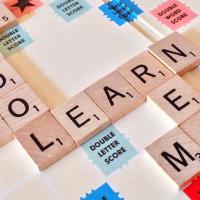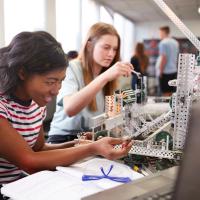Greece: National Curriculum revision

The main objective of the national curriculum revision in Greece is the reorientation of school education to meet recent policy developments in education and emerging social needs ahead of 2022. The revision lays the building block for qualitative education and motivated students, without discrimination. The aim is to put in force curricula where the focus is on students and their well-being; curricula that are functional and open to social challenge, so that students grow into creative human beings and active citizens.
Basic principles and proposals of the National Curricula
- To raise perspective, in a way suitable adapted for every student individually
- Coherence within cognitive objects and between different cognitive fields.
- Learning that encourages connecting with the community, that fosters acceptance and collective being.
- Inclusive education with respect for diversity to ensure recognition; making good use of different identities, languages, special needs, skills and attitudes.
- Basic principles in teaching methodology that promote active participation and cooperation of all students by creating environments for guided learning, self–motivation, synergies and cooperation in problem-solving; an environment open to exploring and experiential learning, supporting communication and transformation.
- Taking into consideration Meta-gnostic skills.
- A looking-forward perspective, through exploring thematic areas like environmental sustainability, citizenship and the challenges arising from the rapid expansion of new technologies and constant social change.
Key objective of the renewed national curriculum is to make full use of digital technologies as a tool for research and learning, in accordance with the recent Digital Education Action Plan 2021-2027 of the European Commission. The revised curricula on digital competence will build on the following key dimensions:
- The technological, that comprises technical knowledge of fundamental IT concepts and ability to use basic ICT environments
- The cognitive, comprising fundamental digital skills and competent use of digital tools for research, creativity, communication and education in the context of the subjects of the curricula and daily school life.
- On problem solving, for an inclusive, competent use of digital skills in the framework of digital competence to be able to identify and solve technical problems and make informed decisions; the development of computational thinking and digital culture.
- On social skills, so that students as digital natives develop the social attitude and skills of contemporary digital culture and digital identity (e-citizenship).
Curricula that create synergies
- Adoption of a flexible and supportive system for the Continuous Professional Development of Teachers, with a focus on in-school training.
- Writing of new school textbooks and supplementary educational material.
- Actions to strengthen the digital readiness of teachers.
- Implementation of Skills Labs in the kindergarten, primary and secondary schools, with the aim to develop 21st century skills, including transversal skills such as life skills, soft skills and digital skills.
In the context of Global Education, to ensure equal access to quality pre-school education and care and to prepare pupils for primary education (Goal 4.2), the Introduction of English language in Pre-school Education, starting from school year 2021/22, through creative and meaningful activities, aims at:
- developing young students' sense of belonging to humankind, sharing values and responsibilities, with empathy, solidarity and respect for diversity
- promoting a culture of global citizenship, which values cultural diversity and the contribution of culture in sustainable development
- empowering young pupils to participate and take active roles, later in life, to actively contribute to a sustainable, inclusive world
- strengthening the advantages associated with early foreign language learning, aiming at children's holistic development (linguistic, cognitive, socio-cultural, personal, emotional)
- developing a positive attitude towards other languages, cultures and education in general
Source: Eurydice Unit Greece




